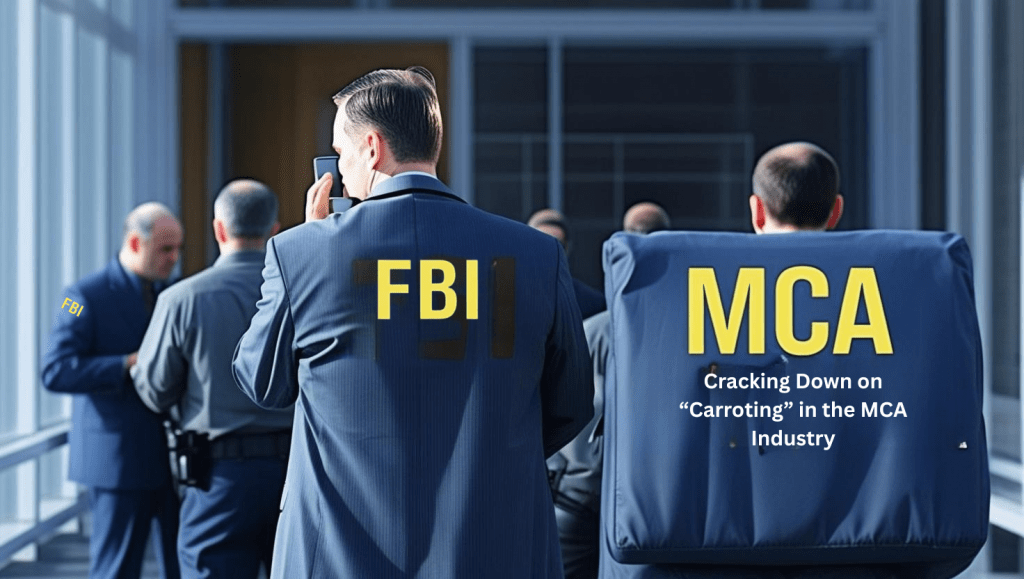
In a major move that’s shaking up the alternative lending world, federal prosecutors in New Jersey have charged eight individuals for running a multi-million-dollar fraudulent lending scheme. According to the U.S. Department of Justice, the group used a web of lies and predatory tactics to take advantage of small businesses desperate for funding. This latest indictment is a clear signal: deceptive practices in the Merchant Cash Advance (MCA) space—like “carroting”—are now firmly in the FBI’s crosshairs.
What is “Carroting”?
In the MCA industry, “carroting” is the practice of luring a small business owner with the promise of a traditional loan or line of credit—but only if they first take out a high-interest MCA. Often, the business is told the MCA is a temporary requirement to unlock better long-term funding. But that second product either never comes, or arrives with more abusive terms.
The result? Business owners, already struggling to stay afloat, are locked into toxic agreements with massive fees and daily payments. It’s a bait-and-switch that preys on vulnerability, and now, it’s getting the attention it deserves from federal authorities.
The Indictment: Names and Allegations
The DOJ’s indictment names several individuals involved in the scheme, including Michael A. Bianco, Matthew Bianco, Nicholas P. Fiorentino, Dominick Bianco, Christopher P. Baccari, Michael A. Mocerino, Anthony J. Davino, and Nicholas J. Calabrese. The defendants are accused of fraudulently obtaining more than $19 million by misrepresenting the nature of their products and forging documents.
Prosecutors allege that the group used fake financial statements, doctored bank records, and false promises to secure funding for their companies—while misleading both borrowers and lenders in the process. The scheme spanned years and victimized small business owners across the country.
Why This Matters for the MCA Industry
This case is bigger than just a few bad actors. It highlights the darker corners of an industry that often operates without clear regulation. “Carroting” and other misleading sales tactics may not always be illegal on their face, but when paired with false documentation and deception, they quickly cross into criminal territory.
The FBI and DOJ are clearly ramping up efforts to clean up the space. And with this high-profile case, they’re sending a strong message: misrepresentation, document manipulation, and abusive loan practices won’t be tolerated.
Brokers, Take Notice
If you’re in the MCA industry and using “carroting” or similar bait-and-switch tactics to close deals, it’s time to reassess. This case shows that even behind-the-scenes players—marketers, underwriters, sales reps—can be pulled into a federal investigation.
Transparency and integrity aren’t optional anymore. The feds are watching, and they’re ready to prosecute.
For Small Business Owners: Know What You’re Signing
If you’re a small business owner being offered an MCA as a path to “unlock” a real loan or line of credit, be careful. That’s a red flag. Always ask for terms in writing, confirm whether you’re taking a loan or a purchase of receivables, and consider speaking with a financial advisor or attorney before signing anything.
Conclusion
The New Jersey indictment is a turning point for the MCA industry. With names, charges, and dollar amounts now public, it’s clear that the era of unchecked, deceptive funding schemes is ending. Whether you’re a broker or a borrower, the message is the same: operate above board—or risk federal consequences.
